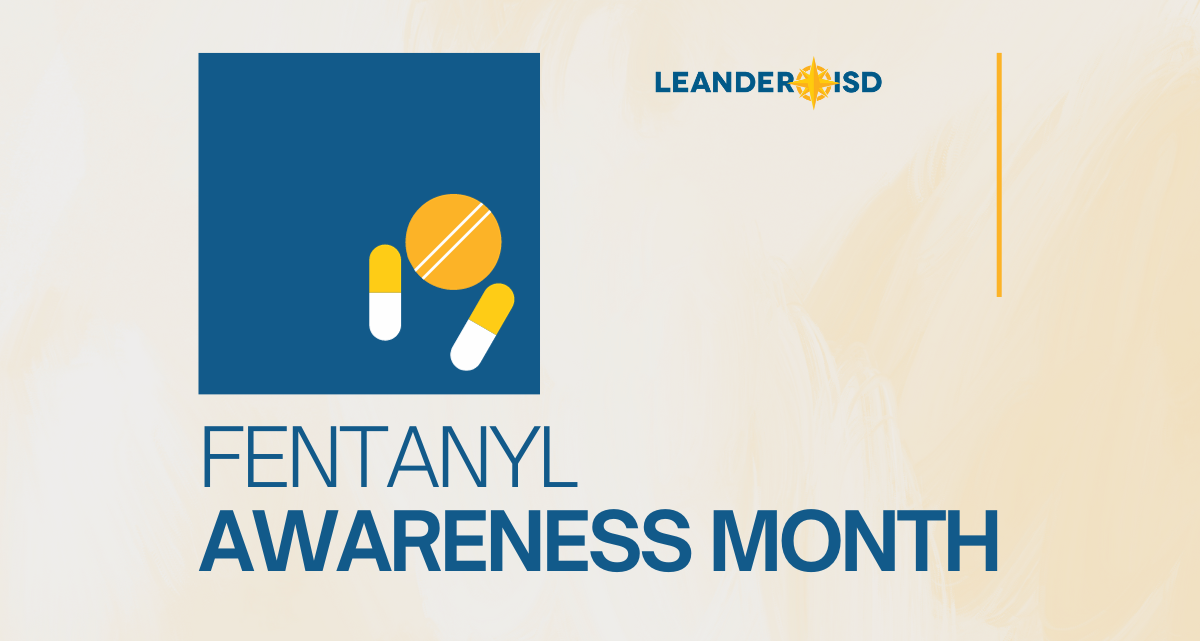October is Fentanyl Poisoning Awareness Month. In an effort to educate the Leander ISD community and increase awareness of the dangers of fentanyl and potential overdoses, the district is sharing information to assist parents and guardians by providing resources for use with students. The information below is from the National Institute for Drug Abuse. These resources will also be available on the Leander ISD Empowering Parents webpage.
Because illegally manufactured fentanyl is increasingly found in counterfeit pills, individuals are often not aware of the danger of the pill they may take. The only safe medications are ones that come from licensed and accredited medical professionals. The DEA warns that pills purchased outside of a licensed pharmacy are illegal, dangerous, and potentially lethal.
What is Fentanyl (and what is its Impact)?
- Fentanyl is a synthetic opioid that is 50–100 times more potent than morphine, often lethal with as little as 2 milligrams.
- Over 71,000 Americans died from fentanyl in 2021, an increase of 23 percent from the previous year.
- Over that same period, Texas saw an 89 percent increase in fentanyl-related fatalities, with provisional data showing 1,672 deaths in 2021 as compared to 883 in 2020.
- The United States Drug Enforcement Agency Laboratory has found that, of the fentanyl-laced fake prescription pills analyzed in 2022, six out of ten now contain a potentially lethal dose of fentanyl.
How to Recognize the Signs of an Overdose
- A person will appear to be unresponsive; may have irregular breathing; may appear gray, blue, or have pale skin color; and may have very small pupils.
What to do if you Suspect an Overdose
- Call 911 immediately or direct someone nearby to call and say that you are supporting a suspected overdose.
- Administer Naloxone. Even though the person is unresponsive: 1) announce that you are going to give naloxone 2) spray the naloxone in the person’s nose. To find out more information about Naloxone, visit the NIDA Naloxone Drug Facts page.
- Follow instructions of the 911 operator.
Additional Resources
- The United States Drug Enforcement Agency has a dedicated parent/guardian page with multiple resources available.
- The National Institute of Drug Abuse has created a resource of conversation starters about substance use and how to talk with teens about substance use.
- The Substance Abuse and Mental Health Services Administration has free Tips for Teens Fact Sheets available for download on a variety of topics.



